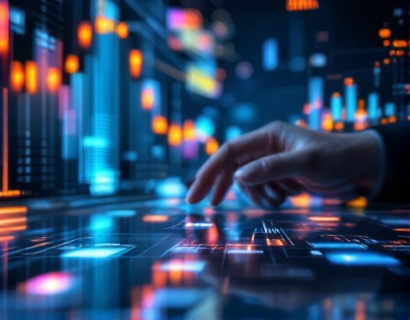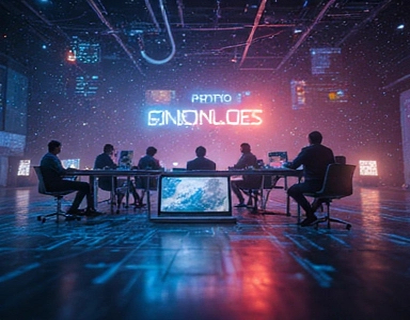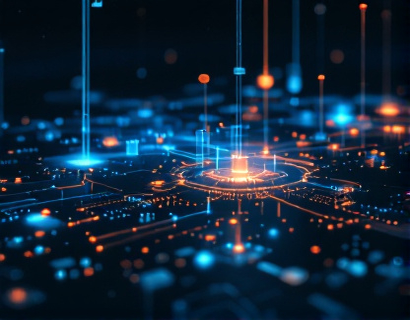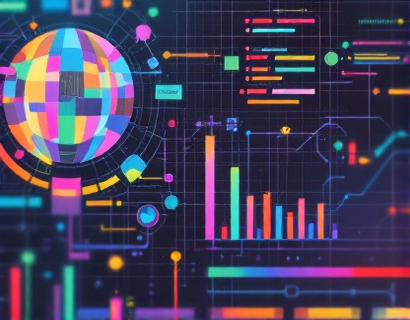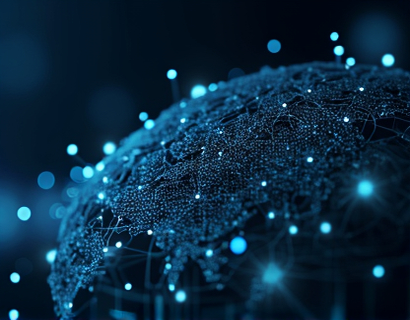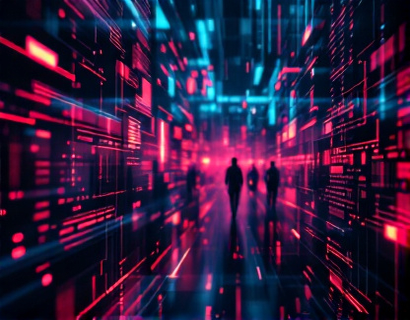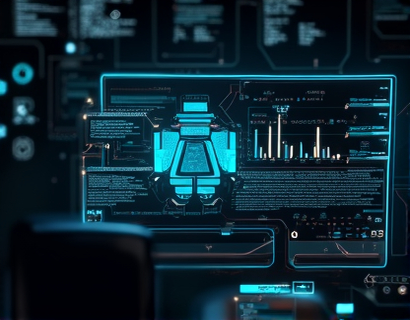Revolutionizing Digital Productivity: The Synergy of AI and Cryptocurrency
The intersection of artificial intelligence and cryptocurrency is giving rise to a new era of digital productivity. This fusion is not just a technological curiosity but a transformative force that is redefining how we work, interact, and manage our digital lives. For tech enthusiasts and early adopters, this convergence offers unprecedented opportunities to enhance efficiency, security, and innovation. This article delves into the ways AI and cryptocurrency are collaborating to create next-generation solutions that are reshaping the digital landscape.
Understanding the Basics: AI and Cryptocurrency
To fully appreciate the impact of AI and cryptocurrency on digital productivity, it's essential to understand the fundamental concepts of each technology. Artificial intelligence, or AI, refers to the simulation of human intelligence processes by machines, particularly computer systems. These processes include learning, reasoning, problem-solving, perception, and language understanding. AI technologies such as machine learning, natural language processing, and computer vision are rapidly advancing, enabling more sophisticated and autonomous systems.
Cryptocurrency, on the other hand, is a digital or virtual currency that uses cryptography for security. The most well-known cryptocurrency is Bitcoin, but there are thousands of others, each with unique features and use cases. Cryptocurrencies operate on decentralized networks, typically blockchain, which ensures transparency, security, and immutability. This decentralized nature eliminates the need for intermediaries, reducing transaction costs and increasing efficiency.
Enhancing Security with Blockchain and AI
One of the most significant benefits of combining AI and cryptocurrency is the enhancement of security. Blockchain technology, the backbone of most cryptocurrencies, provides a secure and transparent ledger for transactions. However, as with any technology, security threats evolve. This is where AI comes into play. AI algorithms can analyze vast amounts of data to detect patterns and anomalies, identifying potential security breaches before they occur. For instance, AI can monitor blockchain networks for suspicious activities, such as unusual transaction patterns or attempts to exploit vulnerabilities, and alert system administrators in real-time.
Moreover, AI can improve the security of cryptocurrency wallets and exchanges. Machine learning models can predict and prevent fraud by analyzing user behavior and identifying deviations from normal patterns. This proactive approach to security not only protects users' assets but also builds trust in the cryptocurrency ecosystem, encouraging more widespread adoption.
Optimizing Workflows with AI-Driven Crypto Tools
The integration of AI into cryptocurrency tools is revolutionizing the way users manage their digital assets. Traditional cryptocurrency management can be time-consuming and error-prone, but AI-driven solutions streamline these processes. For example, AI-powered trading bots can analyze market data, identify trends, and execute trades automatically. These bots use machine learning to adapt to changing market conditions, optimizing trading strategies and maximizing returns. For tech-savvy users, this level of automation saves time and reduces the risk of human error.
Beyond trading, AI can enhance portfolio management. AI algorithms can assess risk, diversify investments, and provide personalized recommendations based on a user's financial goals and risk tolerance. This level of customization is particularly valuable for early adopters who are looking to navigate the complex world of cryptocurrencies with confidence.
Streamlining Smart Contract Execution
Smart contracts are self-executing contracts with the terms of the agreement directly written into code. They automatically enforce and execute the terms when predefined conditions are met. AI can significantly enhance the functionality and reliability of smart contracts. For instance, AI can be used to verify the integrity of the code, detect potential vulnerabilities, and ensure that the contract behaves as intended. This reduces the risk of bugs and malicious attacks, making smart contracts more secure and trustworthy.
Additionally, AI can optimize the execution of smart contracts by predicting and adapting to various scenarios. For example, in decentralized finance (DeFi) applications, AI can dynamically adjust parameters to optimize yields, manage risks, and improve user experience. This level of intelligence ensures that smart contracts are not only secure but also efficient and user-friendly.
Enhancing User Experience through AI and Cryptocurrency
The user experience is a critical factor in the adoption of any technology. The combination of AI and cryptocurrency is no exception. AI-driven interfaces can provide intuitive and personalized experiences for users interacting with cryptocurrency applications. Natural language processing (NLP) enables users to interact with smart contracts and other crypto tools using natural language commands, making the process more accessible and user-friendly.
Furthermore, AI can enhance customer support in the crypto space. Chatbots powered by AI can handle a wide range of inquiries, from basic questions about cryptocurrency transactions to more complex issues related to smart contract execution. These chatbots can operate 24/7, providing instant and accurate assistance, which is particularly valuable for a global and diverse user base.
Decentralized Identity Management
Identity management is a critical aspect of digital productivity, and the combination of AI and cryptocurrency offers innovative solutions. Traditional identity management systems are centralized and vulnerable to breaches. Decentralized identity solutions, powered by blockchain and AI, provide a more secure and user-controlled approach. Users can create and manage their digital identities using cryptographic keys, ensuring privacy and control over their personal data.
AI can enhance decentralized identity management by verifying identities through biometric data, such as facial recognition or fingerprint scans, and by analyzing behavioral patterns to detect fraud. This multi-layered approach not only secures user identities but also simplifies the authentication process, making it more seamless and efficient.
Tokenization of Digital Assets
Tokenization, the process of converting rights to an asset into a digital token on a blockchain, is another area where AI and cryptocurrency intersect to enhance digital productivity. AI can optimize the tokenization process by analyzing market demand, predicting asset values, and automating the issuance and trading of tokens. This efficiency reduces the time and cost associated with traditional asset tokenization, making it more accessible for a wider range of assets, from real estate to art.
For tech enthusiasts, tokenization opens up new opportunities for investment and ownership. AI-driven platforms can provide insights and recommendations, helping users make informed decisions. Additionally, AI can manage tokenized assets, ensuring that transactions are secure, transparent, and compliant with regulatory requirements.
Challenges and Considerations
While the fusion of AI and cryptocurrency offers numerous benefits, it also presents challenges that must be addressed. One of the primary concerns is regulatory compliance. The crypto space is still largely unregulated, and the integration of AI adds another layer of complexity. Ensuring that AI-driven crypto solutions comply with existing regulations and adapt to new ones is crucial for sustainable growth.
Another challenge is the technical expertise required to develop and maintain these systems. Both AI and blockchain technologies are complex and require specialized knowledge. However, as the ecosystem matures, more user-friendly tools and platforms will emerge, making it easier for tech enthusiasts and early adopters to leverage these technologies.
Future Prospects: The Next Frontier
The future of AI and cryptocurrency is bright, with numerous possibilities on the horizon. One exciting area is the development of AI-powered decentralized autonomous organizations (DAOs). DAOs combine the decentralized nature of blockchain with AI-driven decision-making, enabling communities to govern and manage projects autonomously. This could revolutionize how organizations operate, making them more transparent, efficient, and resilient.
Another promising development is the integration of AI with the Internet of Things (IoT) in the crypto space. AI can process and analyze the vast amounts of data generated by IoT devices, enabling more intelligent and automated interactions. For example, AI can optimize energy consumption in smart homes by adjusting settings based on real-time data and user preferences, all while ensuring secure transactions through cryptocurrency.
In conclusion, the fusion of AI and cryptocurrency is transforming digital productivity by enhancing security, optimizing workflows, and providing innovative solutions. For tech enthusiasts and early adopters, this synergy offers a wealth of opportunities to explore and leverage. As the technologies continue to evolve, the potential for further advancements and applications is immense, promising a future where digital productivity reaches new heights.













